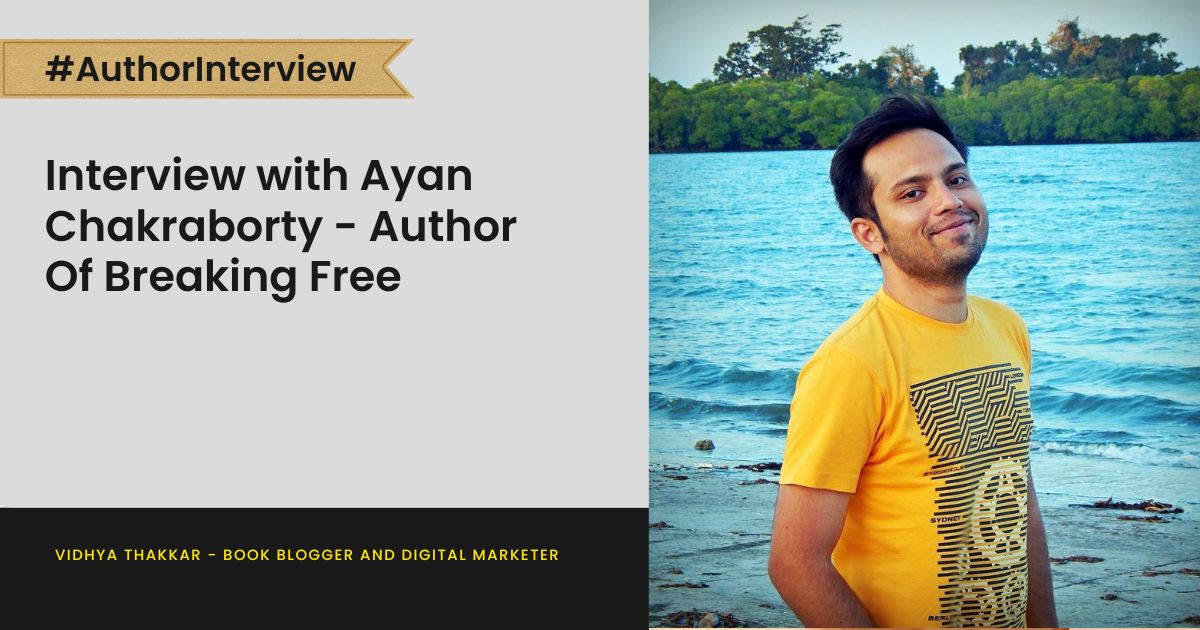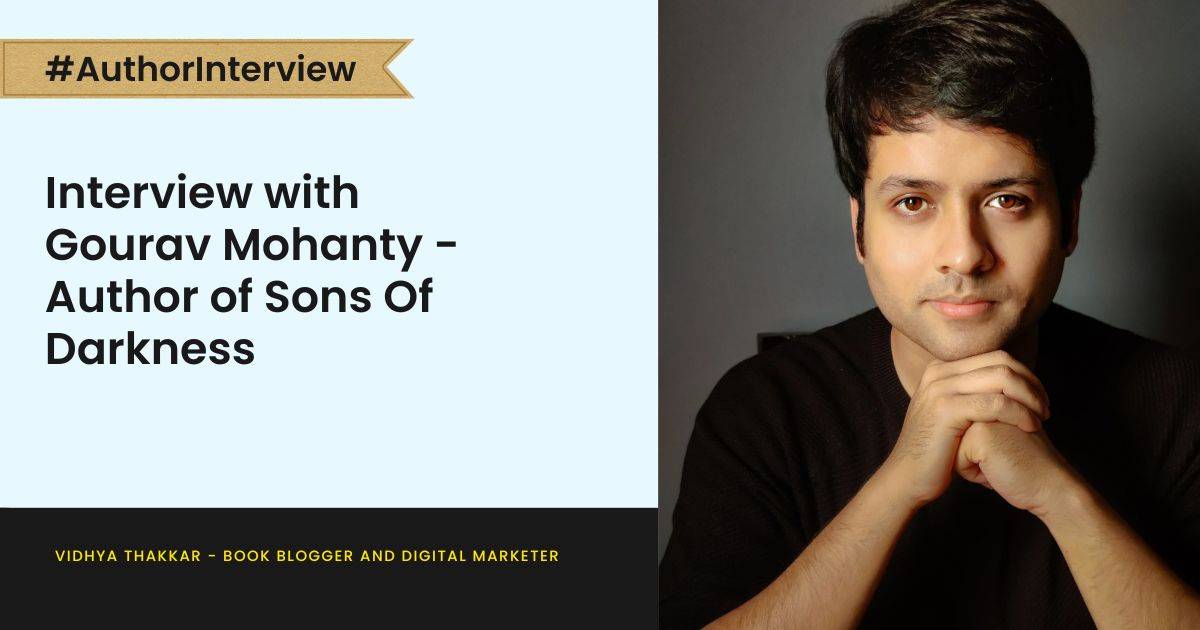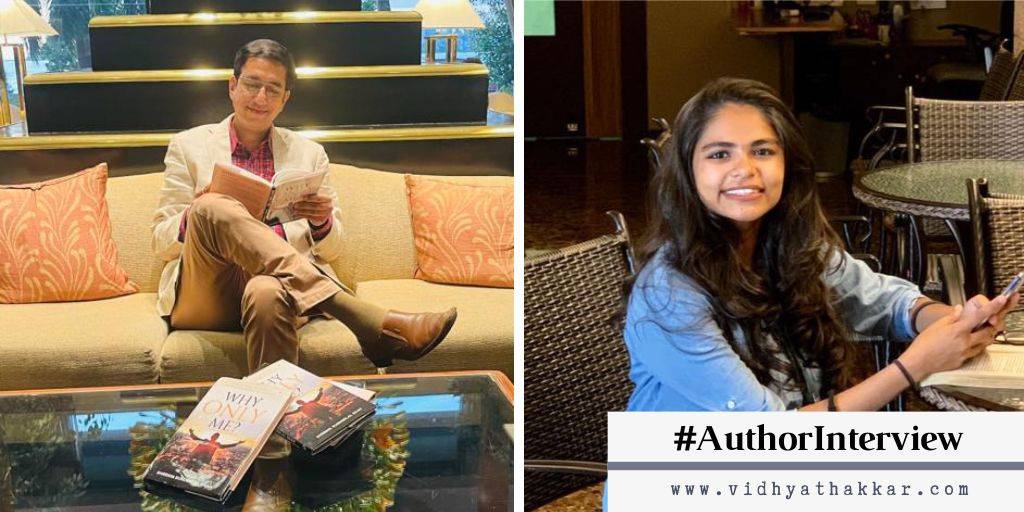About The Author
Ayan Chakraborty is a software engineer by profession and has a Bachelor’s degree in Engineering from KIIT University, Bhubaneswar. Since childhood, his love for reading acted as his inspiration to pursue telling his own stories.
Ayan’s words have found their home in several literary magazines, online storytelling platforms such as Terribly Tiny Tales, and anthologies, most recently in ‘Pause’ published by NotionPress, and ‘A Pocketful O’ stories 2’ curated by Durjoy Dutta.
Breaking Free marks his first individual venture into the world of stories.
When not writing, Ayan could be found in one of Bengaluru’s bookstores selecting his next read or at a café serving great coffee.
Interview
Q) Tell us about the idea behind the book?
As a reader, I am addicted to short stories. So, a short story collection was always on the agenda. I believe an ordinary person’s life has its share of interesting events and I try exploring these in my stories.
All of us are fighting our own battles, in different shapes and sizes. Each one of us are bound by shackles. The book explores the different ways in which we channel our innate desire to attain our personal definition of being free.
Q) How much time did it take in the process of writing?
Since ‘Breaking Free’ is a collection of short stories, the writing process was not continuous. Once I was happy with a story’s draft, I made sure to give myself enough time to plot something different (by not repeating myself), before putting pen to paper again.
The entire book took about two years to be completed (including editing and considerable procrastination).
Q) What did the process of writing this book teach you?
No journey ever comes without its lessons. This one taught me being disciplined and committed to a goal goes a long way towards achieving it. And nothing good ever comes easy.
Q) What inspired you to write this book?
People. More specifically, the people around us. Neighbours, colleagues, friends, that stranger in the park. Ordinary people. I have always believed in exploring their emotions, telling their stories. I know we are always desperate to escape to the lands of fantasy, but I wanted my first work to be a bit closer to reality.
Q) Which is your favourite part from the book?
I would go for the ending of the individual stories. No matter how good a short story is, I believe it is a perfect ending that makes the reader want to go back and read the story again.
As someone had rightly said, ‘all’s well that ends well.’
Also Read: Interview with Mohua Chinappa – Author of Nautanki Saala and Other Stories
Q) A book that had an impact on you, which helped you in writing this one?
Numerous short stories by the legendary Satyajit Ray. Stories by O Henry, most of which are evergreen. These works have helped me understand the structure of a short story and learn how to effectively connect a reader to a character.
Q) Tell us about your plans? Planning a new book?
Ideas are quite frequent. Good ideas, not so much, unfortunately. However, I do want to explore a different format for a thriller next. Hopefully, one fine morning, the universe conspires, and it all comes together.
Q) How your life changed after the book was published?
To a writer, reviews come as blessings. The good ones provide the fuel to come up with new stories, while the constructive criticism helps improve the writing. When people reach out for a signed copy, connect with a character, or write a review quoting a line from the book that stayed with them, I feel all that hard work put into getting this published was worth it.
Q) What is a literary success for you?
To be able to put across the conceived idea in its purest form is a parameter I use to measure success from a personal standpoint.
As a first-time author, I kept my expectations realistic. Although going viral for the book would never hurt (dreams for a moment), for this one I figured if I could connect to even a few readers (who I have no connections with) through my stories, I would treat it as a good start.
Three months after the release, all I can say is the readers have found my characters relatable.
So, when I receive a DM or a little note on social media about the book, it is enough to put a smile on my face. I count that as success.
Q) A message for all the readers.
In a world that streams more and reads less, I urge you to pick up a book. If it’s my book, I will be ecstatic and equally eager for a review. If not, I would still encourage you to read a lot. After all, your mind is only as broad as your bookshelf.
Get your Book Reviewed by Vidhya Thakkar – Connect us Now



